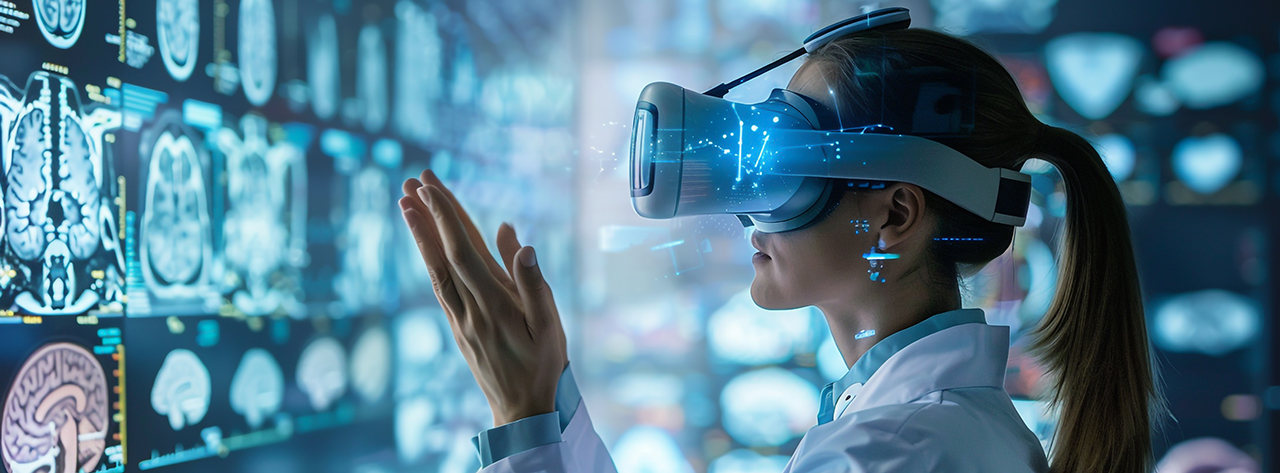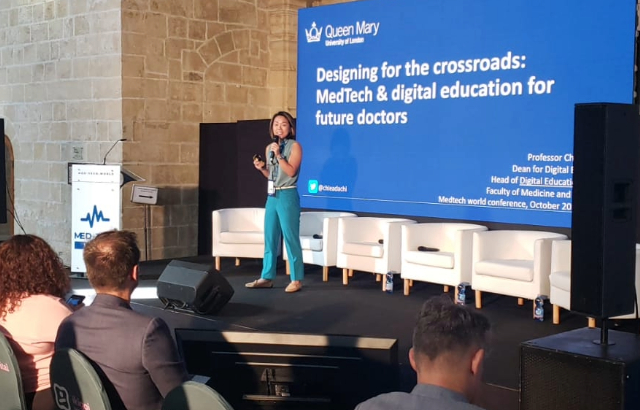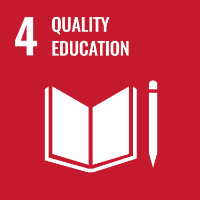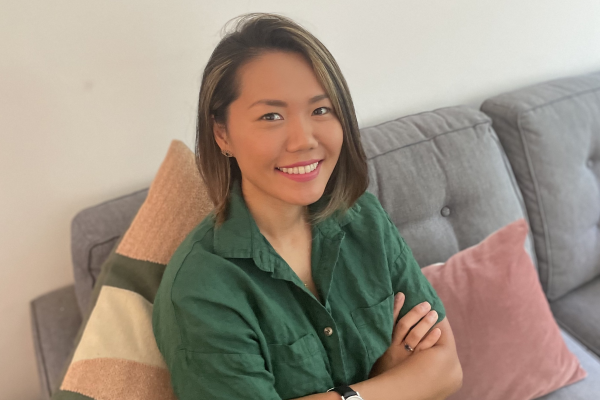
Building a path to accessible medical education
Building a path to accessible medical education
At a glance
- The world is rapidly being shaped and influenced by new technologies, so it's vital the next generation of doctors and dentists get the training they need for their future careers.
- The Queen Mary Digital Education Studio is a flagship medical education initiative working across digital and physical spaces, applying purposeful design of digital tools and resources to provide inclusive learning experiences.
- "Blended Learning", a mix of digital and in-person, provides more flexibility, removing barriers for trainee health professionals with competing priorities.
- Queen Mary and NHS England have launched the first blended learning MBBS in the UK, opening up the medical profession to a wider range of people.
The future of medical training
Society has technologically shifted, changing how we communicate, learn and teach. Yet how we teach medicine hasn’t changed radically for decades. We must prepare our future doctors for a world in which technology is increasingly embedded in medical practice. At the same time, embracing emerging technology promises greater inclusivity and innovation.
Led by Professor Chie Adachi, the Digital Education Studio was created two years ago. It is now staffed by a team of 12 covering learning design, project management, medical education, and more. Its first project supported and provided academic oversight for creation of the first blended-learning MBBS in the UK, a partnership between Queen Mary and NHS England.
If our education system isn’t able to cater for all, regardless of background, then it has failed. Our Digital Education Studio is built to ensure that the next generation of healthcare staff reflect the society they serve, and is prepared to deliver the best healthcare possible to their community.

Professor Chie Adachi's Keynote Session at the Med-Tech awards
Research
The Digital Education Studio’s mission is to broaden access to education, especially to students of diverse backgrounds who are most often under-represented in higher education. It offers ‘blended learning’, a mix of digital and in-person, providing more flexibility to medical students. Using the CARE agenda, it ensures needs of all students are met, and programmes are co-created, active, relational, and evidence based. This puts students at the heart of their own learning, while ensuring that it is accessible.
The team also recognise and value the importance of education as a stepping-stone for future careers, building interdisciplinary skills and career-building into every programme.

Global reach through collaborative course creation
The Digital Education Studio allows us to make our education more accessible to future doctors around the entire world. The team are not just creating courses from a UK perspective and making them available, but co-creating courses with global universities, all while forging deep partnerships. The ‘Digital health: philosophies, technologies and practice’ course, funded by the British Council and developed in partnership with Ain Shams University, Cairo, has had over 2,500 enrolments from 100 countries since launching in January.
Recognition for excellence in digital health education
Since launching 2 years ago, the initiative has also been recognised through awards, winning the Excellence in Digital Health Education Award at the 2023 Med-Tech Awards Event in Malta. The team’s work has also been recognised as a joint-runner up for the 2024 Roger Mills prize by the Centre for Online and Distance Education (CODE) Teaching and Research Awards.
Key takeaways
-
Medical education, and therefore medical professions, are traditionally hard to access for under-represented or marginalised groups. The Queen Mary Digital Education Studio is using blended learning to make quality higher education more accessible to these groups.
-
To make sure healthcare keeps pace with a changing society, it is vital to to ensure a wide range of students can succeed in healthcare education. Radical changes to how professional qualifications are taught is needed if this is to be realised.
-
Medical education also needs to keep pace with technological developments: integrating blended learning can assist with this, and ensure that this expertise is taught globally.
Sustainable Development Goals
 Queen Mary's Digital Education Studio supports SDG 4, quality education, by broadening access to medical education through innovative "blended learning". By partnering with global universities and focusing on inclusivity, the initiative ensures students from diverse backgrounds can pursue medical careers. This effort fosters equitable education and prepares the next generation of healthcare professionals worldwide.
Queen Mary's Digital Education Studio supports SDG 4, quality education, by broadening access to medical education through innovative "blended learning". By partnering with global universities and focusing on inclusivity, the initiative ensures students from diverse backgrounds can pursue medical careers. This effort fosters equitable education and prepares the next generation of healthcare professionals worldwide.
